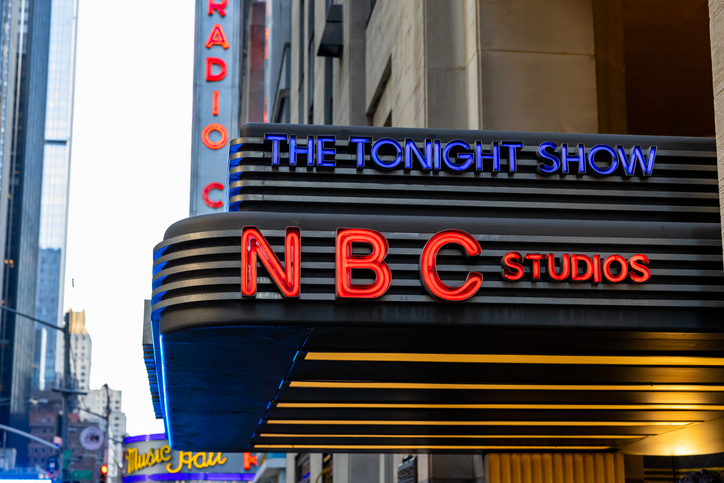NBC’s Big Split: What Happens to CNBC and MSNBC Without NBC News?
In a dramatic shake-up of the media landscape, Comcast's corporate reorganization is sending ripples through the television industry. Soon, CNBC and MSNBC—two networks synonymous with the "NBC" brand—will sever their corporate ties with NBC News. This change raises major questions about the networks' futures, their identities, and the impact on viewers and employees.
As streaming continues to dominate the media world, Comcast’s decision reflects a broader shift in priorities. While the reorganization is aimed at strengthening the bottom line, the consequences for the networks involved are far-reaching and could reshape how news and commentary are delivered in the cable era.
A New Era for MSNBC and CNBC
Comcast’s reorganization involves spinning off several cable networks—including CNBC, MSNBC, USA, Oxygen, SYFY, E!, and the Golf Channel—into a new company tentatively dubbed “SpinCo.” Mark Lazarus, chairman of NBC Universal Media Group, will serve as CEO of this new entity, bringing his expertise to a company navigating uncertain waters.
Cesar Conde, who oversees NBC News, NBC News Now, Telemundo, and local NBC-owned stations, will no longer have MSNBC or CNBC under his purview. This marks a significant restructuring of the NBC brand and underscores Comcast's commitment to distinguishing streaming from cable.
While streaming is heralded as the future, traditional cable networks—once television’s shining stars—are now perceived as burdens. Despite their profitability, these networks are seen as less critical to media conglomerates pivoting toward digital platforms.
What Happens to MSNBC?
For MSNBC, the implications of this reorganization are complex. The network, headquartered alongside NBC News at Rockefeller Center, has long benefited from its proximity to NBC News' resources and journalists. However, as MSNBC transitions to SpinCo, its relationship with NBC News may change drastically.
Will MSNBC still have access to NBC News journalists like Katy Tur and Jose Diaz-Balart? Could the network bear the expense of developing its own newsgathering operation? These questions remain unanswered.
Complicating matters further is MSNBC’s unique identity within the NBC family. The network is known for its liberal-leaning commentary, a stark contrast to NBC News’ emphasis on impartiality. While this dynamic has attracted a dedicated audience, it has also led to occasional friction between the two brands.
One of MSNBC’s most visible assets is Steve Kornacki, the election night numbers guru whose appearances have become synonymous with political analysis. Whether Kornacki and other high-profile contributors will stay on MSNBC’s roster remains to be seen.
Adding to the uncertainty is a drop in MSNBC’s viewership since Donald Trump left office. Historically, networks that cater to one side of the political spectrum often see declines in audience numbers when their preferred party is out of power. However, MSNBC executives are banking on a return of viewers, especially as the 2024 election cycle heats up.
The Trump Effect and MSNBC’s Future
While political changes often bring fluctuations in viewership, a potential second Trump administration could pose unique challenges for MSNBC. Last week, Trump ally Steve Bannon issued a warning to MSNBC producers and anchors, urging them to “lawyer up.”
This political climate could galvanize MSNBC’s audience or put the network under increased scrutiny. Either way, the uncertainty surrounding its future and identity adds an extra layer of tension as it transitions to SpinCo.
CNBC: A Financial Powerhouse in Transition
CNBC, launched in 1989, has always operated with greater independence than MSNBC. Its financial focus has given it a distinct identity, and its offices in Englewood Cliffs, New Jersey, physically separate it from NBC News.
However, CNBC frequently collaborates with NBC News, particularly when its financial reporters lend expertise to NBC’s broadcasts and streaming services. With the corporate separation, CNBC’s operational independence may increase, but its collaborative efforts with NBC News could diminish.
The network’s profitability is one of its strongest assets. CNBC’s "Squawk Box" host Andrew Ross Sorkin recently noted that both CNBC and MSNBC generate “extraordinary profits” for Comcast, money that has not been reinvested in the cable properties.
As part of SpinCo, CNBC will have the opportunity to redirect these profits into its own operations or acquisitions, potentially positioning itself for growth in a rapidly changing media environment.
A Well-Funded Startup or a Sinking Ship?
Mark Lazarus described SpinCo as a “well-funded startup,” an optimistic view of what many see as a strategic divestment. Comcast’s decision to spin off its cable networks aligns with a broader industry trend of prioritizing digital and streaming platforms over traditional television.
Jessica Reif Ehrlich, a research analyst for Bank of America, remains cautiously optimistic, emphasizing that talented executives like Lazarus and SpinCo’s COO Anand Kini bring credibility to the venture.
“You can’t dismiss it as getting rid of the crappy assets,” Ehrlich remarked, highlighting the networks’ continued profitability.
However, questions remain about whether SpinCo will keep the “NBC” branding in its cable properties. While some argue that maintaining the recognizable brand names is crucial, the networks’ departure from the NBC family might necessitate rebranding to establish a distinct identity.
Related: Bluesky: The New Social Media Platform Tops 20 Million Users
The Challenges of Decoupling
The logistical challenges of separating CNBC and MSNBC from NBC News cannot be understated. Shared resources—ranging from legal and promotional services to technical support—will need to be disentangled.
For MSNBC, the physical separation from NBC News’ headquarters at Rockefeller Center could disrupt operations. For both networks, losing access to NBC News’ journalistic talent may require significant investment in their own teams.
Despite these challenges, the networks’ strong brand recognition and profitability provide a solid foundation for the future.
Streaming vs. Cable: The Bigger Picture
Comcast’s decision underscores the growing chasm between streaming and cable in today’s media landscape. While streaming services like Peacock, Netflix, and Disney+ are considered the future of entertainment, cable networks are increasingly seen as liabilities.
However, cable networks still generate significant revenue. SpinCo’s potential lies in leveraging this profitability while exploring opportunities for innovation and expansion. With a focus on reinvesting profits and pursuing undervalued acquisitions, SpinCo could position itself as a lean and adaptable player in the media space.
Will MSNBC and CNBC Thrive?
As MSNBC and CNBC prepare for life after NBC News, their futures are filled with both opportunities and challenges. MSNBC must navigate its identity as a liberal-leaning network while potentially building its own news operation. CNBC, meanwhile, could capitalize on its financial focus to enhance its independence and profitability.
The next chapter for these networks will depend on how effectively SpinCo can balance innovation with its traditional cable roots. While the transition is bittersweet, it also presents a rare chance for reinvention in a rapidly evolving industry.
A Media Revolution in the Making
The separation of MSNBC and CNBC from NBC News marks a pivotal moment in the history of cable television. As they embark on this new journey under the SpinCo umbrella, both networks face uncertainty but also immense potential.
Whether they will thrive as independent entities or struggle to maintain their relevance remains to be seen. But one thing is clear: the media landscape is changing, and MSNBC and CNBC are at the forefront of that transformation.












